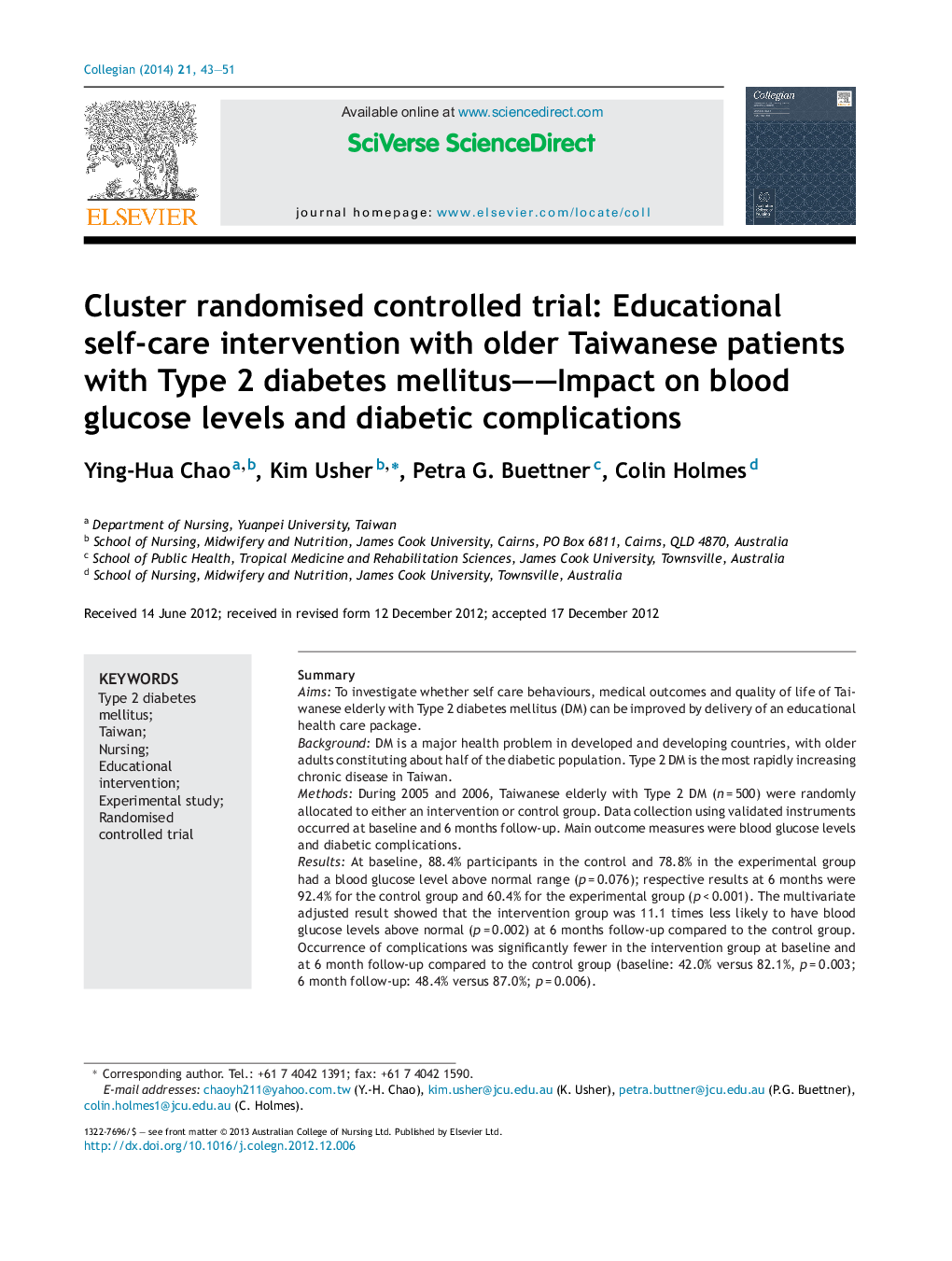| Article ID | Journal | Published Year | Pages | File Type |
|---|---|---|---|---|
| 2646177 | Collegian | 2014 | 9 Pages |
SummaryAimsTo investigate whether self care behaviours, medical outcomes and quality of life of Taiwanese elderly with Type 2 diabetes mellitus (DM) can be improved by delivery of an educational health care package.BackgroundDM is a major health problem in developed and developing countries, with older adults constituting about half of the diabetic population. Type 2 DM is the most rapidly increasing chronic disease in Taiwan.MethodsDuring 2005 and 2006, Taiwanese elderly with Type 2 DM (n = 500) were randomly allocated to either an intervention or control group. Data collection using validated instruments occurred at baseline and 6 months follow-up. Main outcome measures were blood glucose levels and diabetic complications.ResultsAt baseline, 88.4% participants in the control and 78.8% in the experimental group had a blood glucose level above normal range (p = 0.076); respective results at 6 months were 92.4% for the control group and 60.4% for the experimental group (p < 0.001). The multivariate adjusted result showed that the intervention group was 11.1 times less likely to have blood glucose levels above normal (p = 0.002) at 6 months follow-up compared to the control group. Occurrence of complications was significantly fewer in the intervention group at baseline and at 6 month follow-up compared to the control group (baseline: 42.0% versus 82.1%, p = 0.003; 6 month follow-up: 48.4% versus 87.0%; p = 0.006).ConclusionAlthough overall occurrence of complications remained unchanged, the educational health care package specifically developed for Taiwanese elderly with Type 2 DM improved blood glucose levels.
